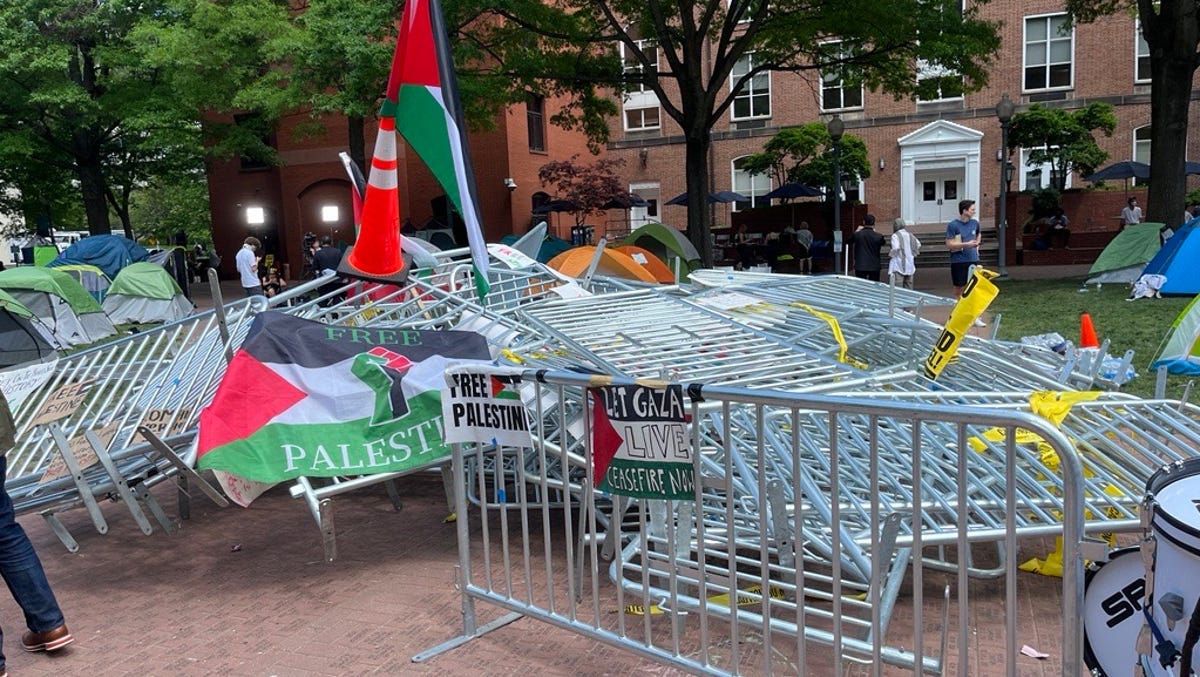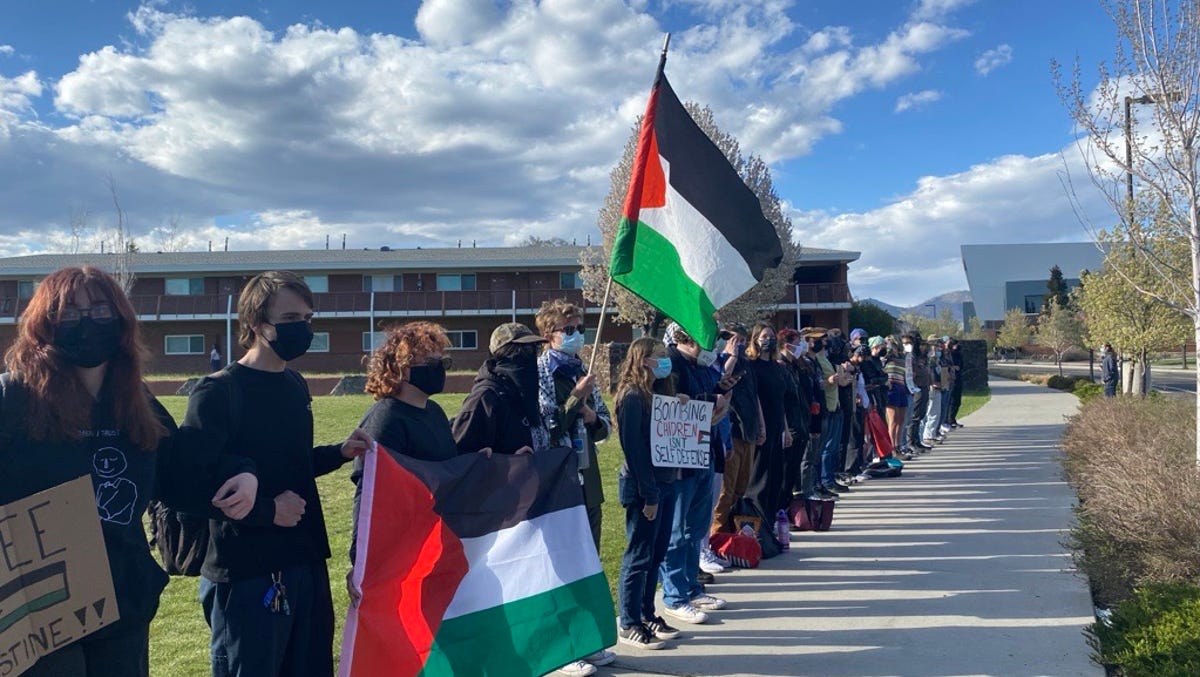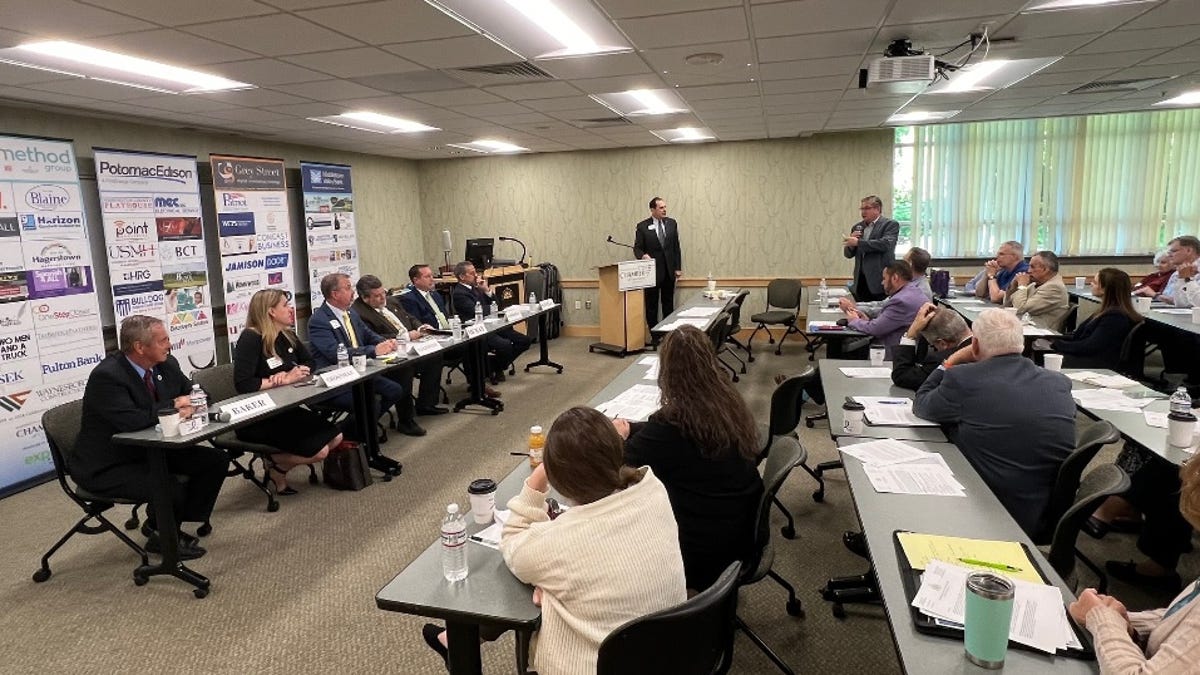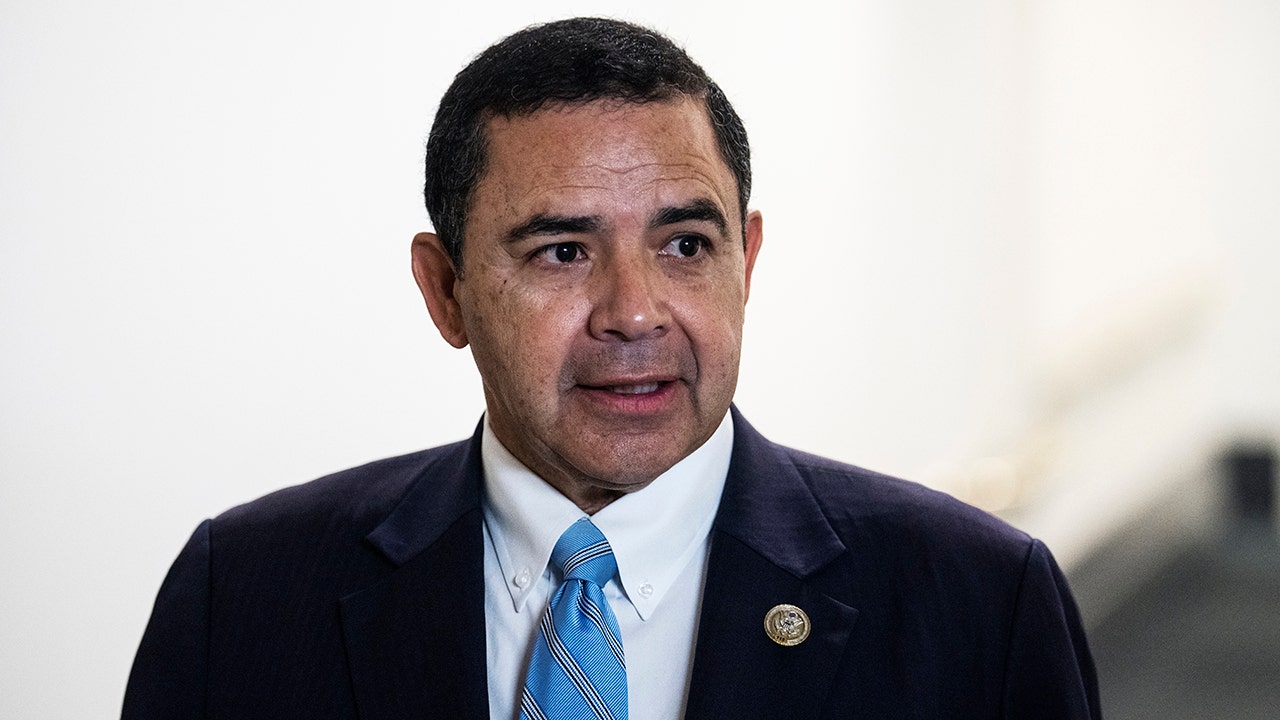Arizona
2 Indian students killed in traffic collision in US’ Arizona

Two Indian students in the United States were killed on the spot in a head-on traffic collision near Lake Pleasant in Arizona, according to police.
The victims, reportedly from Telangana, have been identified as 19-year-old Nivesh Mukka and 19-year-old Goutham Parsi.
They were enrolled as international students at Arizona State University.
According to the Peoria Police, the fatal traffic collision occurred around 6:18 pm on April 20, when they responded to a report of a collision on Castle Hot Springs Road, just north of State Route 74.
The multiple-vehicle collision involved two vehicles a white 2024 Kia Forte and a red 2022 Ford F150 that had collided head-on.
Preliminary investigation shows that the driver of the red F150 was travelling southbound on Castle Hot Springs Road while the white Kia Forte was travelling northbound.
Mukka and Parsi “died from their injuries on scene”, while the driver of the car in which they were travelling was transported to a local hospital with serious injuries and has since been released.
The other car’s driver, the sole occupant of the vehicle, was also taken to a local hospital with serious injuries and has been released, the statement said.
The area was closed for several hours during the investigation but was reopened for normal traffic Sunday morning.
“The cause of this collision is still being investigated,” the police said.
“Our thoughts are with the victims, their families, and everybody who rendered aid during this tragic incident,” the Peoria Police Department said.
The Arizona State University said the International Students and Scholars Centre is working with the dean of students, counselling services and housing representatives to identify the student groups, friends and roommates of the victims so that they can offer any needed support. PTI LKJ/YAS RC GRS AKJ GRS GRS
This article was generated from an automated news agency feed without modifications to text.

Arizona
Video: Arizona treasurer discusses anti-boycott divestment sanctions amid university protests – KTAR.com

Kimberly Yee, Treasurer of Arizona and the highest-ranking GOP official in the state, joined the AZ Political Podcast to talk achievements from her 2022 campaign and shed light on Arizona’s stance on anti-boycott divestment sanctions. This comes amid protest demands from students at ASU and University of Arizona for divestment from Israeli companies. Yee also shared a story about about spending time at her majority leader desk with the late Sandra Day O’Connor.
Video: Jeremy Schnell and Felisa Cárdenas/KTAR News
Photos: Bob Christie/AP; Getty Images
Arizona
Report ranks Arizona 49th in adult mental health care

Sky Schaudt/KJZZ
The entrance of the Arizona State Hospital in Phoenix.
Mental Health America ranked Arizona 49th in the nation for adult mental health care. The national nonprofit determines rankings based on the prevalence of mental illness and the access to mental health care. Arizona’s 2023 ranking of 49 out of 51 is based on the state having a higher prevalence of mental illness and lower access to insurance and treatment.
For Rachel Streiff, an organizer and member of Arizona Mad Moms, this ranking was no surprise. She and other family members, caregivers and friends of individuals with severe mental illness have been advocating on their behalf for adequate psychiatric services and treatment for quite some time.
“[Arizona Mad Moms] really organized itself,” Streiff said. “The end result of not providing these long-term and acute levels of care is that families are feeling that heavy burden.”
Streiff was granted legal guardianship over her 31-year-old friend, whom she identified only as Kelsey, in 2022, and has been supervising her medical needs since then.
“She’s been in and out of the hospital for years, and she hasn’t received effective long-term stabilization and treatment,” Streiff said. “Her illness is very complicated and it’s beyond what current community treatment services are equipped to handle.”
Kelsey, who currently lives in a behavioral health residential facility, was assigned to Streiff’s care with her mother’s permission.
Streiff said that going to court to obtain a guardianship can be difficult and very expensive.
“Families that can’t afford an attorney or can’t afford to hire a private doctor don’t have the ability to get that kind of order,” Streiff said.
“I took on her case because her parents were aging and her father recently passed away,” Streiff said. “She just didn’t have anyone to advocate for her.”
Legal guardianship gives Streiff permission to attend doctor appointments and, by Arizona law, she must be included in all conversations regarding Kelsey’s medications.
“In those discussions, individuals with an SMI (severe mental illness) really can’t communicate whether a medication is working or not,” Streiff said. “They may also have incorrect ideas about what’s actually helpful.”
In January, Streiff said Kelsey was prescribed the incorrect dosage for medication given after her discharge from the hospital, which resulted in a seizure two days later.
“I verified the medications that were on the sheet leaving the hospital, but I did not verify what was actually filled in the prescriptions that arrived at her residential placement,” Streiff said. “How would the average person with a serious mental illness that didn’t have a guardian even know that mistakes are being made in their treatment?”
An SMI is “a chronic and long term mental health condition that impacts a person’s ability to perform day-to-day activities or interactions,” according to the Arizona Health Care Cost Containment System.
SMIs are most commonly treated with psychotherapy and medications. Some people with SMIs need heavy supervision and some do not. Kelsey needs the level of supervision that happens in a residential facility, like the one she’s in now.
Streiff’s guardianship has enabled her to get Kelsey into a behavioral health residential facility, or BHRF.
“Having the means for her (Kelsey’s) family and friends to be able to do that is why she’s doing well where she’s at today,” Streiff said.
Although she doesn’t need restraint, Kelsey does need full-time care and help with decision making. Strieff points out that there’s capacity in what are known as “voluntary” facilities, for individuals who are able to advocate for themselves, but there is a lack of resources for highly vulnerable individuals who need constant care, like Kelsey.
Acute locked facilities, like the Arizona Department of Health Services’ Arizona State Hospital in Phoenix, provide “the highest and most restrictive” level of care in the state, according to AZDHS. Patients who cannot be treated in a community facility or cannot receive care due to their criminal legal status are admitted. The Arizona State Hospital is able to hold 260 patients, with 117 beds at the Civil Hospital and 143 at the Forensic Hospital. As of April 28, 92% of the beds were occupied between both facilities.
As of 2019, there were 8,923 supportive housing and residential care beds in Arizona available for individuals with an SMI who qualify for Medicaid, but do not need the state hospital’s level of care.
To gain admission to a BHRF, patients must be diagnosed with a condition with symptoms and behaviors that make residential treatment necessary, including at least one serious functional or psychosocial impairment; a display of significant risk of harm, such as suicide or homicide; and inability to remain safe within the patient’s current environment.
Kelsey currently lives in a residential SMI clinic operated by Copa Health and Mercy Care, an Arizona nonprofit that provides services for people with disabilities, but Streiff said she is about to lose her space since her family’s income is too high to qualify for Medicaid but not high enough to afford private care, and the state has limited funds.
“They (SMI patients) end up at home with their mother or their family who often don’t have the resources to care for them, and it’s a very difficult situation,” Streiff said. “So we have caregivers that are very heavily burdened and who are often in harm’s way.”
Because Kelsey does not receive AHCCCS assistance, she was given a six-month maximum stay at her facility. Streiff said that although Kelsey is “thriving” at the residential facility’s level of care, the next option is Flex Care — a short-term program that combines treatment within an apartment setting.
“As soon as a member is placed anywhere, the discharge planning starts,” Streiff said in a text message. “This (Flex Care) is not supported at all for non-Medicaid or the state funds. So (it’s) not really an option. The family is researching a lot of potential discharge options, including private pay. The clinic sent us some private pay options. Some of them were $25,000 per month, which few families can afford.”
Medicaid disparities

Arizona Department of Health Services
The Arizona State Hospital was originally called the Insane Asylum of Arizona when it opened in 1887 at 24th Street and Van Buren in Phoenix.
Will Humble, executive director of the Arizona Public Health Association, an advocacy organization, said a new law requiring AHCCCS to collect and analyze data on clinical outcomes for those with an SMI will help provide statistics for court-ordered evaluations.
“Right now, there’s not enough data available on the patients to make good decisions. About whether to go into court-ordered treatment,” Humble said. “So one of the weaknesses in our behavioral health system right now is that our state Medicaid agency is only capturing processed data, like ‘Did this person with mental illness get assigned to an assertive community treatment team? Are they getting outpatient treatment encounters at day programs?’”
The bill, SB 1311, was signed by Gov. Katie Hobbs on April 16 and will require AHCCCS to create recommendations to improve the information gathered on the SMI community and give assistance to those who need mental health services, but do not qualify for court-ordered evaluations.
“What you really want to know is how often are persons with a serious mental illness getting arrested, going into emergency departments, having inpatient hospital stays, getting arrested and ending up homeless,” Humble said. “This is going to require AHCCCS and their managed care plans to collect much better outcome data so we can hold them more accountable for the public dollars.”
According to the National Alliance on Mental Health, the average cost of psychiatric care in a community hospital for an individual with a SMI can range anywhere from $3,616 to $8,509 for less than two weeks. As of April, more than 1.9 million Arizonans were enrolled in Medicaid, with the income limit for one person set at $1,670 per month.
Humble also said affordability extends beyond patient care in how it affects the number of employees at state facilities.
“The (workforce) shortage is worse in Arizona than it is in other states,” Humble said. “Like it or not, clinicians do follow the money. If a state has a reputation of bad reimbursement in the Medicaid system, over time, fewer and fewer clinicians will locate to that state.”
According to data from the University of Arizona reported in May 2023, the state needed between 142 and 233 full-time psychiatrist physicians to eliminate the current mental health care shortage.
Matthew Moody, the president of the board of directors for Mental Health America of Arizona, said the state’s sober living fraud may have been a symptom of Arizona’s poor access to mental health services. The scam preyed on vulnerable individuals — particularly Native Americans — who were lured into residential facilities and encouraged to sign up for AHCCCS to pay for care that did not exist. Officials estimate that the state may have lost as much as $2 billion in payments to fraudulent providers before the scheme was shut down early last year.
“It was a complete failure of the system in Arizona to protect these people and to make sure that people get good care. I know that they’re working very hard to find ways to fix that,” Moody said.
Although youth mental health access in Arizona ranked 29th out of 51 on the MHA’s national list, adult mental health deeply affects the mental well-being of children whose parents lack necessary resources, according to Matt Jewett, director of health policy at the Children’s Action Alliance.
“Children’s mental health is going to be affected by parents, especially (by) mother’s mental health,” Jewett said. “Adverse childhood experiences … are extremely important. Arizona has a higher rate of children who have multiple adverse childhood experiences. That can be things like maternal depression, parents going to jail or domestic violence.”
Jewett said that despite these barriers in adult mental health care, children are receiving better care from services provided by their schools.
“One of the things that we have pushed for has been reimbursement by AHCCCS of services that are provided at schools,” Jewett said. “Children may get quality care at a health-care provider. … But not every young person has that. Sometimes the most convenient place is for them to get services in school.”
More stories from KJZZ
Arizona
Arizona governor's signing of abortion law repeal follows political fight by women lawmakers
PHOENIX (AP) — Arizona Gov. Katie Hobbs’ signing of the repeal of a Civil War-era ban on nearly all abortions was a stirring occasion for the women working to ensure that the 19th century law remains in the past.
Current and former state lawmakers and reproductive rights advocates crowded into the 9th floor rotunda outside Hobbs’ office Thursday afternoon, hugging and taking selfies to capture the moment. Some wept.
“It’s a historic moment, and it’s a place and time where thrilling moments all come together,” Democratic Rep. Stephanie Stahl Hamilton said during the signing ceremony. “It’s a time where we are doing away with what is in the past that doesn’t fit the present.”
Stahl and Sen. Anna Hernandez, also a Democrat, were the two current lawmakers chosen to speak at the ceremony for their efforts to ensure repeal of the long-dormant law that bans all abortions except those done to save a patient’s life.
The effort won final legislative approval Wednesday in a 16-14 Senate vote, as two GOP lawmakers joined with Democrats during a session of some three hours where motivations for votes were described in personal, emotional and even biblical terms. There were graphic descriptions of abortion procedures and amplified audio of a fetal heartbeat, along with warnings against “legislating religious beliefs.”
Abortion-ban advocates in the Senate gallery jeered state Republican state Sen. Shawnna Bolick as she explained her vote in favor of repeal, then she was scolded by GOP colleagues. Bolick is married to state Supreme Court Justice Clint Bolick, who voted with the majority in April to reinstate the 1864 law. He faces a retention election in November.
The House previously approved the repeal, with three Republicans in that chamber breaking ranks.
Hobbs says the move is just the beginning of a fight to protect reproductive health care in Arizona. The repeal is set to take effect 90 days after legislative session ends, which typically is June or July once the budget is approved.
“This means everything to get this archaic, inhumane territorial law off the books,” said Dr. Gabrielle Goodrick, founder of Phoenix-based Camelback Family Planning, which performs a third of abortions in Arizona.
A 2022 statute banning the procedure after 15 weeks of pregnancy then will become Arizona’s prevailing abortion law.
Abortion rights advocates, led by Planned Parenthood Arizona, have filed a motion with the state Supreme Court to prevent the 1846 law from taking hold before the repeal does. If it’s rejected, girls and women could see a pause in abortion services.
The 19th century law had been blocked in Arizona since 1973 with the U.S. Supreme Court’s decision in Roe v. Wade that guaranteed the constitutional right to an abortion nationwide. When the federal law was overturned in 2022, it left Arizona’s in legal limbo.
The Arizona Supreme Court last month took the state back decades and reinstated the ban that provides no exceptions for survivors of rape or incest. The justices suggested doctors could be prosecuted for violating the law, with a maximum five-year prison sentence if convicted.
The anti-abortion group defending the ban, Alliance Defending Freedom, maintains county prosecutors can begin enforcing it once the Supreme Court’s decision becomes final, which hasn’t yet occurred. Democratic Arizona Attorney General Kris Mayes is making a push to delay the enforcement of the ban until sometime in late July.
Meanwhile, abortion-rights advocates are collecting signatures to enshrine reproductive rights in Arizona’s constitution. A proposed ballot measure would allow abortions until a fetus could survive outside the womb, typically around 24 weeks, with exceptions to save the parent’s life or to protect her physical or mental health.
Republican lawmakers are considering putting one or more competing abortion proposals before voters in November.
In other parts of the U.S. this week, supporters of a South Dakota abortion rights initiative submitted far more signatures than required to make the ballot this fall, while in Florida a ban took effect against most abortions after six weeks of pregnancy, before many people even know they are pregnant.
President Joe Biden’s campaign team believes anger over the fall of Roe v. Wade will give them a political advantage in battleground states like Arizona, while the issue has divided Republican leaders.
For the Democratic women who led the effort on the repeal in Arizona, Thursday was celebratory moment but also showed there’s more work to be done, they said.
In an interview before the signing ceremony, Stahl Hamilton talked about her early years on the Navajo Nation where her parents were school teachers and where federally funded clinics still limit abortion services.
She talked about a sister-in-law who she said struggled with two difficult pregnancies, one that resulted in a stillbirth and a nonviable one in which “they had to make the heartbreaking decision to terminate that pregnancy, because there was no brain development.”
“And I imagine that had any of these laws been in place during the time when she was needing care, it really would have wreaked havoc,” Stahl Hamilton said.
When the Civil War-era ban was passed, all the 27 lawmakers were men, America was at war over the right to own slaves and women couldn’t vote, Hobbs said. Now, the Arizona Legislature is roughly evenly divided between men and women.
Hernandez became involved in politics after her younger brother, Alejandro, was killed in a police shooting in April 2019. She and her two other siblings have tattoos with his portrait on their left arms.
Her sister is a nurse in labor and delivery, and she has two nieces, aged 16 and 12, she said.
“In this moment, I think of them being able to grow up in the state that we love so much, having the rights that they have,” she said.
Former Democratic state Rep. Athena Salman was so overcome with emotion Thursday that she could barely speak when she was called to the lectern at the signing ceremony. She proposed a repeal of the 19th century law in 2019, three years before Roe v. Wade was overturned.
Salman, who resigned in January to lead an abortion rights group, said she can’t stop thinking about her daughters.
“Future generations will not have to live under the restrictions and the interference that we have had to experience,” she said.
-

 News1 week ago
News1 week agoLarry Webb’s deathbed confession solves 2000 cold case murder of Susan and Natasha Carter, 10, whose remains were found hours after he died
-

 News1 week ago
News1 week agoFirst cargo ship passes through new channel since Baltimore bridge collapse
-

 World1 week ago
World1 week agoHaiti Prime Minister Ariel Henry resigns, transitional council takes power
-

 World1 week ago
World1 week agoSpanish PM Pedro Sanchez suspends public duties to 'reflect'
-

 World1 week ago
World1 week agoUS secretly sent long-range ATACMS weapons to Ukraine
-

 Movie Reviews1 week ago
Movie Reviews1 week agoHumane (2024) – Movie Review
-

 News1 week ago
News1 week agoAmerican Airlines passenger alleges discrimination over use of first-class restroom
-

 Education1 week ago
Education1 week agoVideo: Johnson Condemns Pro-Palestinian Protests at Columbia University






:quality(70)/cloudfront-us-east-1.images.arcpublishing.com/adn/2GWZCU6K5FEBLL5CQ6BIYCSQBM.jpg)











